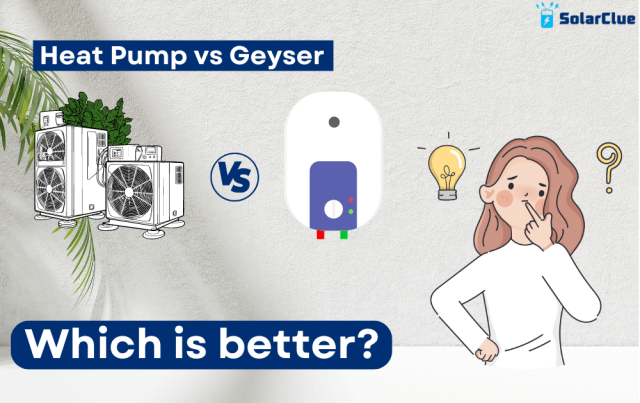Is a Heat Pump Water Heater Worth it?
Are you considering getting a Heat Pump Water Heater for your home? In today’s day and age, the world is focusing on energy efficiency and sustainability. But is a heat pump water heater worth the hype?
Let’s look into the pros and cons to understand whether a heat pump is what your home needs.
Table of Contents
The Difference between a Heat Pump Water Heater and Traditional Water Heaters
Do you ever wonder, how a heat pump works, and how it differs from a standard electric water heater, like a geyser?
A traditional water heater, like a geyser works by drawing in cold water through a dip tube and using internal electric heating elements to warm the water. As the water is heated, the hot water rises to the top of the storage tank.
Whereas a heat pump water heater consumes the surrounding heat to produce hot water. It compresses the heat consumed by the exhaust fan. Then the heat is transferred to the storage tank, where the water is stored. Electricity is only used in a heat pump to compress the heat.

Now let’s discuss the pros and cons of a Heat Pump Water Heater.
Pros of Heat Pumps:
1. Environment Friendly
As it was discussed earlier, a heat pump only consumes energy to compress the heat. It consumes only one-fourth of electricity consumed by a geyser. As it consumes less energy, it leads to a reduction in greenhouse gas emissions.
2. Longer Life Span
A heat pump cost of installation can be higher than a geyser, but it has a longer life span. Traditional water heaters typically last around 8-12 years. On the other hand, heat pump water heaters can last up to 10-15 years. Therefore, the higher upfront cost is justified.
3. Reduction in Expenses
The upfront cost is higher, but it saves a lot of money, as it is low power consumption water heater. The heat pump produces hot water using heat from the environment. So, it uses less energy, leading to a reduction in monthly electricity bills.
4. Heat pump Efficiency
As heat pump consumes surrounding heat, so it uses minimal electricity to heat the water. Therefore, a heat pump efficiency is higher in comparison to other electric systems. This leads to saving huge amounts of money as it consumes less energy. So, a heat pump is cost effective as well.
Cons of Heat Pumps:
1. Difficult in Cold Climate
As a heat pump uses heat from the environment to produce hot water, it takes a lot of time to heat the water. However, a backup electric coil is there in heat pumps, which works when there is insufficient heat available in the surrounding air.
2. Time- consuming
Because of the lower operating temperature, a heat pump takes longer to produce hot water than a traditional water heater. So, households may face difficulty in producing hot water during times of high demand.
3. Upfront Cost
As it was mentioned earlier, the upfront cost of a heat pump water heather is higher than a standard electric, like a geyser. The high installation cost can be a disadvantage, but a heat pump cost is tremendously saved as it is a low power consumption water heater.
Conclusion
Every innovation has both pros and cons. But, if we look at the benefits of a heat pump water heater, it is definitely worth it to purchase a heat pump. It will be cost effective in the long run and will also have positive environmental impact.
You can visit SolarClue® to see the best heat pump water heaters. SolarClue ® is an online marketplace where solar energy products are sold at discounts up to 50%.




